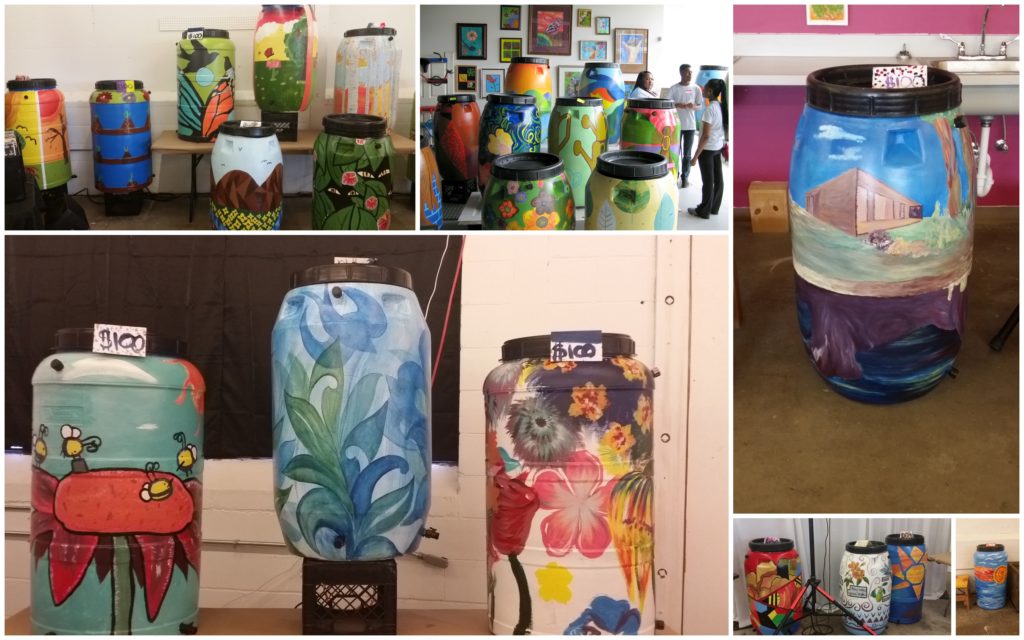What is a Rain Barrel?
A rain barrel is a great “low-tech” way to tap into a free supply of water that would otherwise drain into the sewer system.
Any homeowner can do it! You simply install a large drum below the downspout of a gutter to catch the stormwater runoff from your roof. A standard 55-gallon rain barrel can fill in a matter of minutes during a strong rainstorm. Most come with a spigot for filling watering cans and a connection for a soaker hose, making it easy for you to use the water you collect to irrigate your lawn, water your plants, or wash your car.
This small one-time investment will lower your water bills for years to come and is good for the environment!

Homeowner Benefits
Rain barrels save water. Water used on lawns and landscaping accounts for nearly 40 percent of residential water consumption during the growing season, according to the EPA. By collecting water in rain barrels, homeowners can cut their water use dramatically during peak summer months.
Rain barrels save money. Stormwater is a free source of water. The savings most homeowners will gain the very first summer will more than offset the cost of their rain barrel.
Stormwater is good for your lawn and plants. Stormwater is fresh, naturally soft, and low in salt and chlorine, making it great for nourishing plants or landscape during the dry summer months. In fact, stormwater is better for plants than tap water, which may contain inorganic ions and fluoride compounds that accumulate in soil over time and can harm plant roots and microorganisms in the soil. Because roofing materials may contain hazardous chemicals, some groups recommend avoiding the use of rain barrel water on edible plants.
Community Benefits
Rain barrels reduce water demand. When you collect and store stormwater, you are helping to ease the demand on our region’s water supply. This can be especially helpful during summer months when the demand for water is high.
Rain barrels cut the flow to wastewater treatment plants. Rain barrels collect and store stormwater that would otherwise drain into the sewer system. By diverting it for your personal use, you are helping to ease the burden on our wastewater treatment facilities and drainage systems during storms, when flow typically peaks.
Rain barrels save energy. Water and wastewater treatment facilities use a considerable amount of energy to deliver clean water to your home and to treat your wastewater. The less drinking water you use, the more energy these plants save.
A rain barrel teaches water conservation. The people in our region hear a lot about the need to “go green.” A rain barrel is great way to get started. When combined with appropriate plant selection and mulching, a rain barrel can be used as an educational tool to promote water conservation.
Environmental Benefits
Rain barrels reduce stormwater runoff. Rainwater picks up fertilizer, oil, pesticides, and other contaminants as it travels over hard surfaces and lawns into storm sewers. Here in St. Louis, some of this water flows directly into streams, lakes, and other bodies of water, where it can impact water quality. By capturing this water virtually at its source, rain barrels minimize runoff pollutants and protect everyone’s water supply.
Rain barrels help replenish the groundwater supply. Free of most runoff pollutants, the stormwater you use on your lawn seeps back down into the ground, helping to replenish the groundwater supply.

